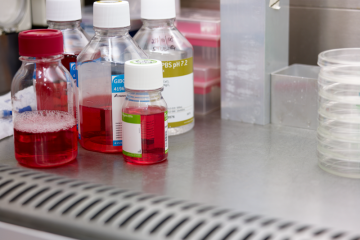Strategic grant
Validation of non-animal derived products for stem cell-derived breast cancer organoid models

At a glance
Completed
Award date
October 2024 - March 2025
Grant amount
£83,716
Principal investigator
Dr Cinzia Allegrucci
Institute
University of Nottingham
R
- Replacement
